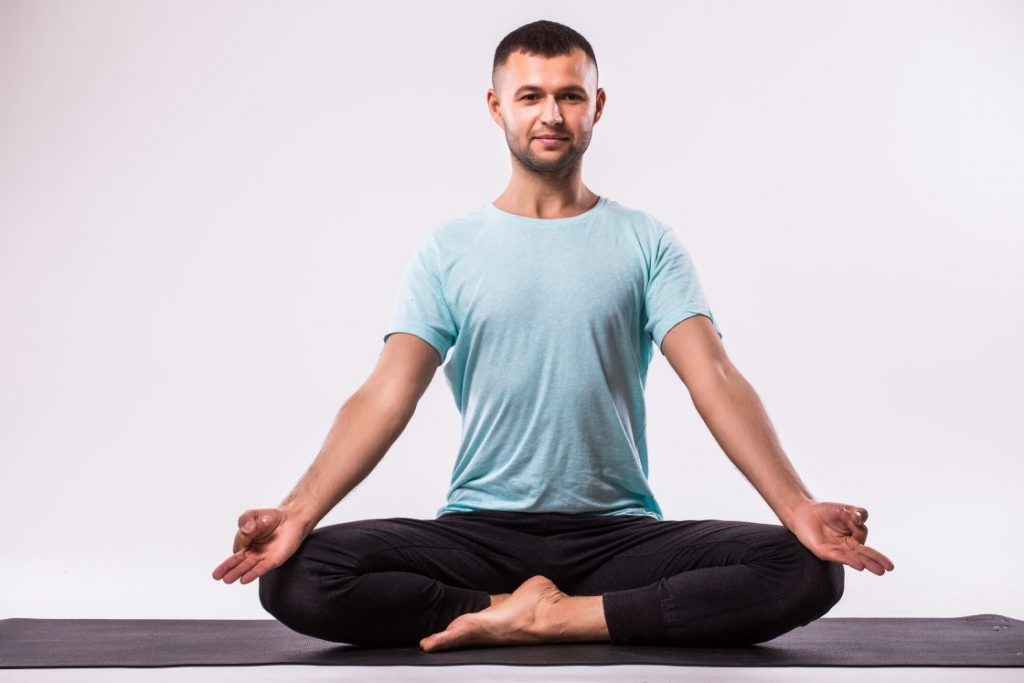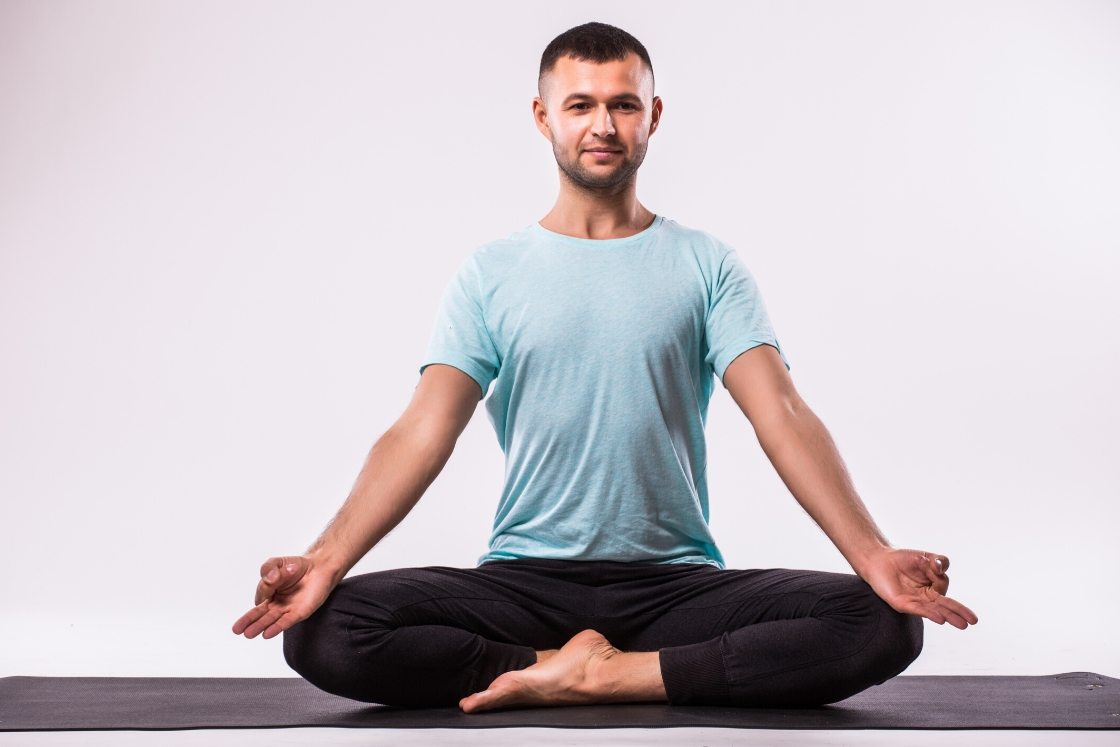
Hello Campers,
Hope you are well and that your transcendental meditation (in London or online) is going beautifully.
I’ve often been fascinated by the propensity of both psychologists and spiritual aficionados to reference the ego, and it’s apparently destructive influence. It’s also been interesting to grow up with some sense of what the ego was, without anyone ever really explaining what it was. We sort of end up with this second hand legacy of what it might be, with a vague sense that someone with a bolshy demeanour possesses a self evident ego problem.
However, as I’ve come to realise over the years after much practice of vedic meditation, it’s actually about the way we identify ourselves. What we identify as being ‘us’. Our ego is our sense of self, and because we’ve all grown up in a culture that has stripped out any spiritual considerations from our worldview, that only leaves us the option of identifying as an individual, lost in a dualistic world, fighting for the right to exist, be heard, be adored and so on.
As we find our identity in relation to the world, we take up positions that we often steadfastly cling to. But are those positions, and those opinions, really us? Have we genuinely and independently arrived at those positions because they are us, or because society told us they were a good idea? Do we feel the truth of them in every fibre of our being? Or do we merely ‘think’ they are undoubtedly the right position to take? Are our views consistent, as we touched upon in our recent post on the subject?
I feel inclined to explore this theme in depth in the coming months, but for now, I felt it might be quite interesting to offer an example where our ego plays havoc with our lives and in general society. That is the increasingly ubiquitous phenomena of taking offence.
You see, any time someone takes offence at something, it’s an ego reaction. And what’s doubly interesting is that we so often take offence on other people’s behalf. I saw a post on Facebook yesterday where some guy was berating Matthew Broderick for killing people in a car accident in Ireland in 1986, saying he should never be forgiven, even though the brother/son of the two people killed had forgiven the Ferris Bueller actor a long time ago, realising that it was an unintentional accident and that sometimes, unfortunately, painful shit happens. And yet this armchair warrior, still wasn’t willing to forgive the guy 35 years later, even though he had no connection to the family that was killed, nor it seems accurate information on the police investigation that took place afterwards. Why is that? A meditation for beginners course would do this guy no harm.
Well the guy clearly has a narrative running about the privilege of the rich and famous. He may well also find himself limited by a number of narratives about the apparent injustice of the world. Ultimately, I would venture, his ego probably feels hard done by, and ultimately scared about the level of dualistic isolation he feels. He is basically projecting his own personal shit, whatever it may be, onto the so called perpetrator, and indeed out into the world.
But you see it everywhere, and not just in the echo chambers of social media. There are literally people taking offence ALL the time. But just because you recognise that something is crossing a boundary, malicious, ignorant, self interested or whatever it is you perceive, it doesn’t mean you have to start kicking and screaming about it, nor indeed quietly seethe about the unacceptable injustice of it. And yet, if you are genuinely interested in catalysing change, you may well have an even more progressive influence if you stay elevated and speak what you feel to be is a self evident truth, that percolates and resonates over time, and brings people with you, rather than fostering ‘us and them’ dynamics whereby your aggression simply triggers other ego reactions. Because whilst that short term noise may raise attention, it often doesn’t produce the long term results your ego hopes it will, because you are operating in a world of 7 billion egos, most of which are fully identified with their sense of individuality and personality, and fiercely protecting their opinions because to be wrong implies your sense of identity is somehow misplaced.
Now, don’t get me wrong, the ego is an important defence mechanism, which from time to time we need to lean on, in order to maintain a healthy sense of individuality in the world, and to offer the unique expression that our individuality brings to the world. But is that it?
According to predominant western philosophy it is, and yet according to many of the spiritualists, the ego actually masks our fundamental essence. It’s a vice, a block, a handbrake and a thief to our real nature.
So how do we take a position, on our incessant desire to take a position? Do we go with the materialists/dualists? Or do we somehow buy into the spiritual creeds that suggest we reject every ounce of ego in order to attain some romanticised notion of enlightenment?
As is often the case, the answer isn’t either/or. It’s actually rather more elegant than that. Our job is to somehow find a way to connect with the higher self/universe/divine (pick a term that you feel is most appropriate*), so that our ego can actually begin realising your deeper truth as a universal being. Bit by bit, we then find an optimal balance between our sense of individuality, and our sense of universality, so that ultimately we can have a healthier relationship with ourselves, the world of humans, and indeed every aspect of the wider universe, including all the things that are not yet widely acknowledged because of the subtlety of their existence.
Remember, this is not an intellectual entrainment exercise. This is not about one minute spouting on and on about how everything is ‘perfect’, and then the next minute losing your shit because your side of Kale is not crispy enough as you self righteously chomp on your mung bean salad. This is about enabling your deep subconscious to go beyond its present limitations and realise the true extraordinariness of who you really are.
So how do we go about achieving this? Well, for many thousands of years, meditation has been one of the principle tools used to help offer us a portal to our own (and shared) universal nature. But it’s not exclusively that. Collective dance and song has also been widely used throughout history. As have herbal medicines.
All have their value. However, the one thing you can do – whilst not being reliant on others’ participation, nor becoming dysfunctional due to the potency of the medicine – is to practice transcendental meditation.
And if you have a mindful meditation technique that slowly but surely recalibrates your sense of self to something more reflective of who you really are – beyond all the stress, emotion, adrenaline, triggers and conditioned traits – then you are onto to an absolute winner. You will realise that the pot of gold at the end of the rainbow is actually at the very core of your being.
Anyway, there’s so much more to be said on the subject, so maybe we’ll revisit again soon. But for now, I gently encourage you to consider whether you really need to let your ego take over and dominate your experience by taking offence at all the various stimulii that comes your way, simply because you ego’s narrow sense of self doesn’t yet understand how to stay elevated when confronted by a different view or behavioural tendency.
With Love and Universal Vibes
Will and the Team xxx
(*anyone who insists on a particular term/language set is ironically coming from a place of ego in their need to feel a sense of control and have their belief system validated)
Download the Beeja app for guided meditations for sleep, meditations for anxiety, meditations for focus and more. Book one of our in-person meditation courses in London or a live online vedic meditation course and experience an elevated level of life.

The Benefits of Beeja Meditation
- Reduce stress and anxiety
- Greater clarity and calm
- Increase focus
- Enhance relationships
- Sleep better
- Feel energised


Leave a Reply